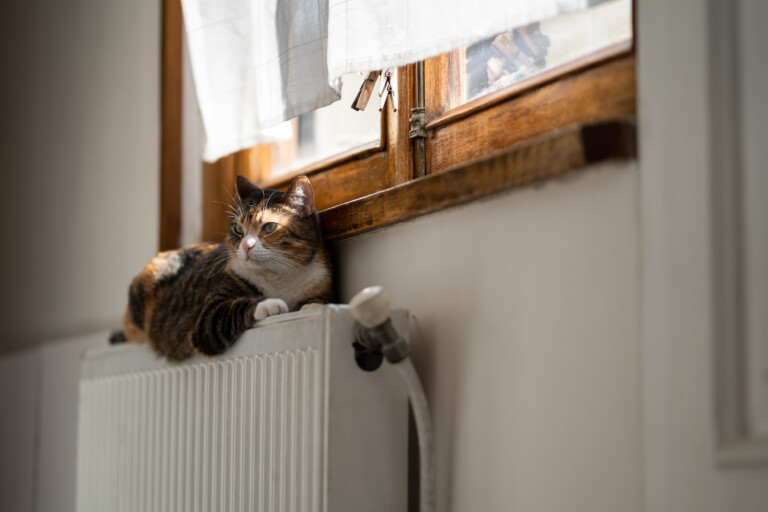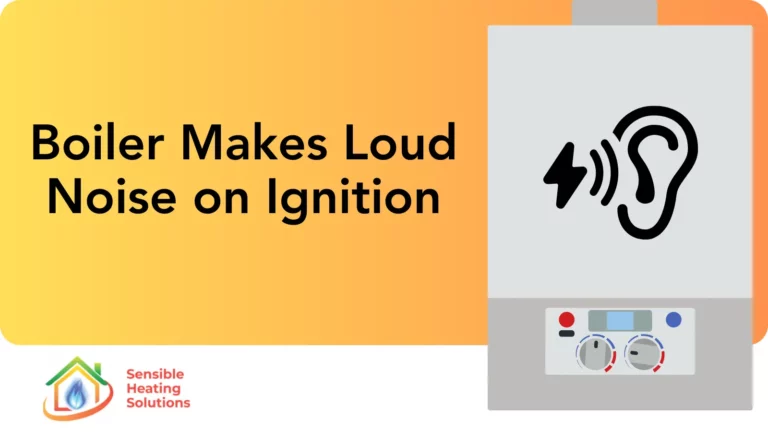A practical guide to comparing boiler cover packages
3rd August 2023


Call us 0116 366 5664
20th May 2024

Boiler ignition noise often results from delayed ignition, kettling, or water hammer. Delayed ignition causes gas buildup. Kettling involves a limescale. Water hammering results from high pressure or loose pipes. These issues create dangers like carbon monoxide leaks, fire hazards, and system damage. If your boiler makes a loud noise when it starts, call a certified gas safe engineer right away. They will diagnose and fix the problem. Regular maintenance and timely repairs ensure safe and efficient boiler operation.
Boilers produce loud noises on ignition because of several specific issues. Delayed ignition happens when gas builds up before igniting. This buildup leads to a sudden explosion. Kettling results from limescale buildup restricting water flow, causing overheating and steam bubbles. Water hammer happens when high pressure or loose pipes cause water to bang. Each issue requires a different approach for resolution.
A faulty burner causes incomplete combustion, resulting in loud noises on ignition. The burner might not mix air and gas, leading to inefficient ignition. Inspect and repair the burner to ensure proper operation.
Dirty burners restrict gas flow, causing delayed ignition and loud noises. Accumulated debris prevents the burners from igniting the gas. Cleaning the burners removes obstructions and ensures smooth ignition.
Limescale buildup in the heat exchanger restricts water flow, causing kettling. The slow flow causes overheating. It creates steam bubbles, which cause loud banging. Descale the system to restore normal operation.
A defective gas valve fails to regulate gas flow, causing delayed ignition. The irregular gas supply leads to gas buildup and a loud bang when ignited. Replacing the faulty valve ensures consistent gas flow and proper ignition.
Loose components, such as pipes or brackets, vibrate and create noise during ignition. These vibrations cause banging sounds as the boiler operates. Tighten or secure loose parts to cut the noise.
A faulty thermostat fails to regulate temperature, causing the boiler to overheat. Overheating leads to kettling and loud noises from steam bubbles. Replacing the thermostat ensures proper temperature control and quiet operation.
A cracked heat exchanger causes water and combustion gases to mix wrong. This mixing leads to loud noises. The crack allows gas to escape and ignite irregularly, creating bangs. Inspect and replace the heat exchanger to restore safe and efficient boiler operation.
Boilers producing loud noises during ignition present several dangers. These include potential carbon monoxide poisoning, combustion issues, and other safety hazards. Each of these dangers can have serious consequences and requires immediate attention.
A malfunctioning boiler may leak carbon monoxide, a colorless and odorless gas. Carbon monoxide poisoning results from inhaling this toxic gas. It can cause severe illness or death. Symptoms include headaches, dizziness, nausea, and confusion. Regular inspections and maintenance by a certified gas safe engineer prevent leaks. They also ensure safe operation.
Delayed ignition causes a buildup of gas in the combustion chamber. This buildup causes a mini-explosion when ignited. This irregular combustion can crack the heat exchanger. It leads to more inefficiencies and potential leaks. Good maintenance and timely repairs keep the combustion system working properly.
Loud ignition noises may mean high pressure. They may also come from loose parts or other problems. These issues are safety hazards. High pressure can cause water hammer, damaging pipes and the boiler itself. Loose components can create vibrations, leading to structural damage or failure. You must address these issues fast, secure loose parts and regulate pressure. This will keep your home safe.
When your boiler makes a loud noise on ignition, it indicates potential issues that require immediate attention. Addressing these problems promptly ensures safe and efficient boiler operation. Here are the steps to take:
High or low boiler pressure can cause loud noises during ignition. Check the pressure gauge on your boiler. The optimal pressure range is usually between 1.0 and 1.5 bars. If the pressure is outside this range, adjust it accordingly. Use the filling loop to increase pressure or bleed the radiators to decrease it. Regularly checking and fixing the right pressure prevents more issues.
Air trapped in the radiators can cause banging noises when the boiler ignites. Bleed the radiators to release the trapped air. Turn off the heating system and use a radiator key to open the bleed valve. Allow the air to escape until water starts to flow, then close the valve. This process ensures efficient heat distribution and reduces noise.
A blocked or damaged flue or exhaust vent can cause ignition problems and loud noises. Inspect the flue and exhaust vent for obstructions or damage. Ensure they are clear and properly connected. Any blockages or leaks should be fixed right away. This will stop harmful gases from entering your home.
Limescale and sludge buildup in the boiler system can cause kettling and loud noises. Consider powerflushing your system to remove these deposits. Powerflushing uses a strong pump. It circulates a cleaning solution through the system. This dislodges and removes debris. This process restores efficient water flow and reduces noise.
If the noise continues after the above steps, schedule a boiler repair. The repair person should be a certified gas safe engineer. The engineer will diagnose and fix any root issues. These include a faulty burner, bad gas valve, or cracked heat exchanger. Regular maintenance by professionals ensures your boiler stays safe and efficient.
Need help with your boiler or heating system? Contact us today
3rd August 2023

14th June 2023

6th December 2022
